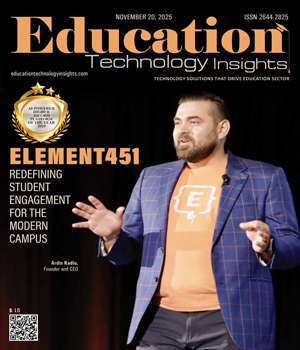THANK YOU FOR SUBSCRIBING
Be first to read the latest tech news, Industry Leader's Insights, and CIO interviews of medium and large enterprises exclusively from Education Technology Insights
Exam Management: Connecting Educational Technology with Instructional Designers for Instructional Effectiveness
Diane Gavin Executive Director, Center for Academic Innovation Texas A&M University-San Antonio
 Diane Gavin Executive Director, Center for Academic Innovation Texas A&M University-San Antonio
Diane Gavin Executive Director, Center for Academic Innovation Texas A&M University-San AntonioFew things challenge faculty more than grading tests or projects for multiple course sections, especially during the midterm and final exam periods. Instructional effectiveness requires an array of assessment practices to determine student proficiency and progress. Exam management, or the logistics, security, and results processing of an examination, is frequently a last-minute focus for many faculty. However, exam management does not have to be onerous, nor does it have to be overwhelming. Focusing on the overall learning design experience helps faculty develop an exam management process.
In any learning environment, even the best college or university faculty member is under pressure to ensure that appropriate student outcomes are achieved and verified. In higher education, there exists a broad range of knowledge, skills, and abilities being assessed across multiple academic levels and age groups. Instructors who teach First Year Seminars have different assessment needs from those teaching with High Impact Practices (HIP) in a Senior Seminar or a graduate course. Add the rise of hybrid, HyFlex, and LifeFlex classroom environments in response to on-demand student interest, as well as the rise of generative AI student use in the classroom, and the need for an exam management process becomes clearer to assure instructional effectiveness. The concern for many institutions of higher education is how scalable and at what cost is the exam management process.
Exam management has four basic stages: planning, designing, implementing, and reviewing. Skilled instructional designers can help faculty create exam management processes that include planning and designing test activities; constructing test random-item banks, whether building instructor-generated or AI-generated test banks, to allow for multiple modalities and multiple course-level examinations scored by the computer; and creating interactive game-based situations to test higher order skills. Instructional designers can also provide strategies for holding and recording oral presentations for examinations, help faculty design test or project rubrics for reliable grading, offer ideas on how to reduce student test or project anxiety, or advise ways for faculty to present learning strategies for students in advance of test or project due dates. Working with an instructional designer, faculty can consider different types of educational technology tools to secure their exams and manage the testing or project environment.
“In any learning environment, even the best college or university faculty member is under pressure to ensure that appropriate student outcomes are achieved and verified.”
Instructional designers can also assist faculty exam management by discussing types of assessment activities to meet the needs of the course at various stages of the class. Scaling evaluations throughout a course is not as difficult as one might think. Diagnostic assessments can be quickly conducted through student self-assessments or pre-tests at the beginning of a course or unit, and self-assessments or pre-tests can be constructed using gamification. Formative assessments focused on process points of the course can be user-friendly homework-like pre-quiz preparations, minute essays at the end of a class session, reflective short essays at different stages of the course to gain insight into student growth, or 15-minute conferences held in person or online at different points in the semester to address student ability. Summative assessments, such as the traditional final exam or final project, can often be designed as formative assessments until the final submission. All assessment approaches can be adapted for online, hybrid, HyFlex, LifeFlex, and traditional face-to-face delivery, and strong instructional designers can provide insight into the learning management system (LMS) tools available to faculty to plan, design, and conduct a range of assessment activities that address student achievement.
Exam management can take a variety of forms based on the faculty end users, but to reiterate, all exam management centers on four distinct areas: planning, design, implementing, and reviewing. The challenge is for faculty to find secure, easy-to-implement, scalable, low-cost, and flexible assessment environments that align with student and institutional learning outcomes as well as with the instructors’ skills using the educational technology tools available to them through their institutional LMS or add-on learning tools interoperability (LTI) software. Instructional designers located in Centers for Teaching and Learning or in Centers for Academic Innovation become critical guides for helping instructors determine and develop which educational technology services and tools provide both student engagement and measurable outcomes to support instructional effectiveness.
Read Also
The Power of International Education Collaborations
Designing Schools around Student Voice
What is Edtech Leadership in 2026
Designing Academic Leadership Around Real Lives
Why Student Success Begins with Being Seen
Inclusion is not a Department: The Systemic Ripple Effect of Belonging

I agree We use cookies on this website to enhance your user experience. By clicking any link on this page you are giving your consent for us to set cookies. More info



















